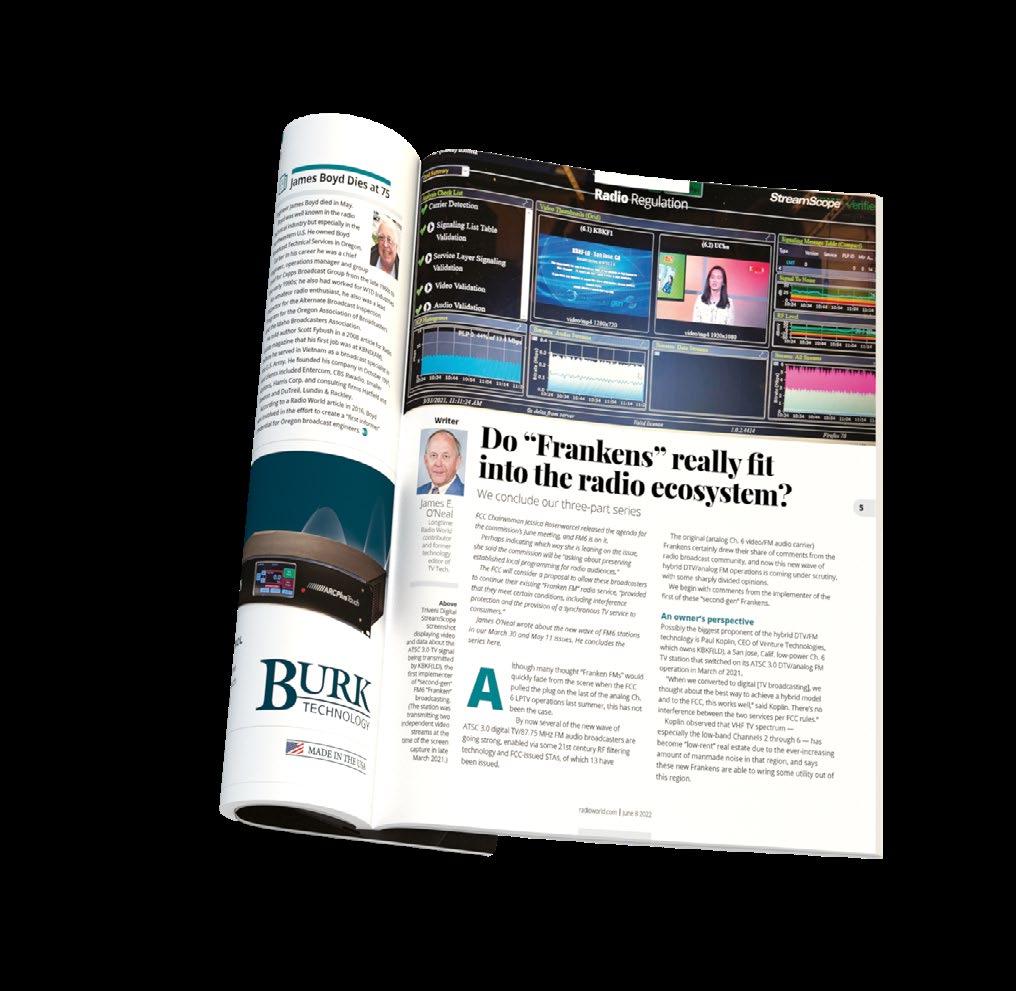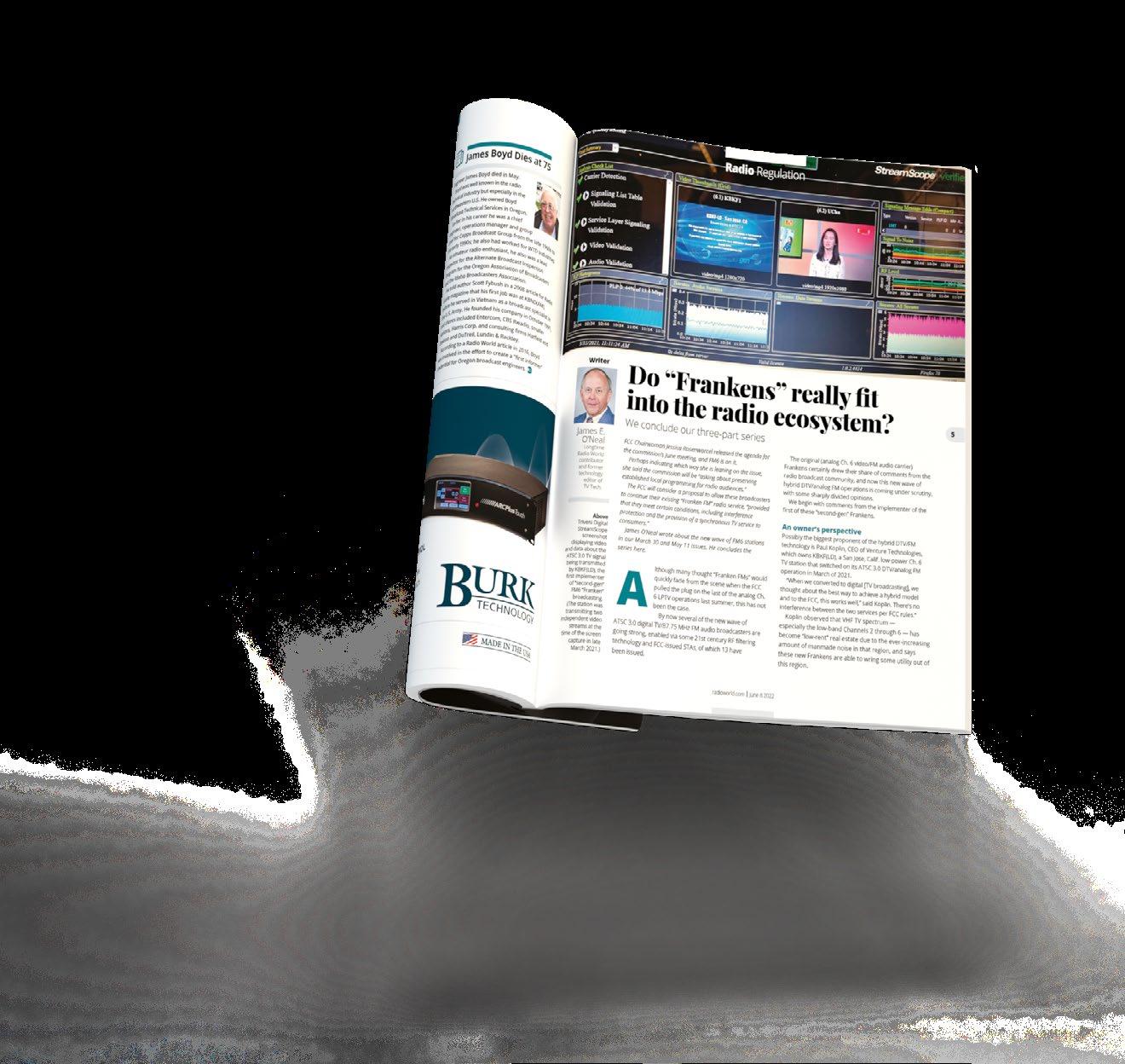
2 minute read
Newswatch

Use Ch. 6 for Real Radio, NPR Says
As the FCC ponders a final decision about the future of Franken FMs, National Public Radio senses an opportunity to create new noncommercial educational radio stations.
The commission has opened a notice of proposed rulemaking on the future of FM6 stations, those low-power digital television stations whose analog audio can be received by radios at 87.75 MHz.
NPR submitted an idea that piggybacks on whatever conclusion the FCC eventually adopts. It proposes to repurpose Channel 6 spectrum (82–88 MHz) for new FM services in locations where those channels are not being used to provide “actual television programming” by Channel 6 LPTV and full-power stations.
The idea of using spectrum just below the current FM band for new radio services has been bruited before but never gained serious traction.
But with the commission apparently open to allowing LPTV stations to use that spectrum for radio services not originally foreseen by the regulators, NPR is raising the issue afresh.
Thirteen FM6 stations are operating with STAs allowing them to use a hybrid configuration of ATSC 3.0 digital and a separate analog FM radio transmitter as an ancillary service. NPR believes this is contrary to statute and poor public policy.
“NPR maintains that the spectrum occupied by a single TV Channel 6 station could potentially accommodate up to 30 new FM stations,” the FCC wrote in its NPRM, “exponentially increasing the variety of programming available for a diverse audience.”
NPR believes repurposing the spectrum would be a “far better use of a scarce resource” than FM6 audio operations. “NPR also argues that it would increase the opportunities for diverse providers to provide local public interest programming for unserved and underserved audiences, especially in the rural parts of the country.”
The commission asked for comment, noting that “Today’s FM radio receivers cannot tune down to the rest of the (proposed radio) spectrum, 82.1–87.5 MHz. We invite comment on how this technical roadblock should influence our consideration of this issue.”
Among other questions the FCC asked is whether such stations should be limited to noncommercial educational purposes, and whether interference would be a concern. The commission is taking comments about this and many other questions surrounding FM6 stations in Docket 03-185.
Above
Read James O’Neal’s three-part series about FM6 online at tinyurl. com/franken-6.






